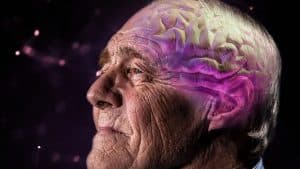Psychosis. Even today, when people have become a lot more open-minded and understanding of mental illness, it’s a word that some hear with dread. It’s full of stereotypes and misunderstandings that can stop sufferers from receiving support.
It is not uncommon to hear terms like “psychosis” or “psychotic” thrown around as generic synonyms for dangerously mentally ill. That’s despite psychosis having very specific criteria that have to be met before it can be diagnosed, and the majority of people with psychosis not harming anyone else.
The DSM, which is the manual that defines most mental illnesses, describes psychosis as being characterized by hallucinations, delusions, disorganized thinking and motor skills, and negative symptoms such as a lack of emotional expression or motivation.
In short, psychosis affects how people perceive reality, causing them to see or hear things that aren’t there or have false beliefs about the world. It can affect how someone speaks or moves and even stop them from feeling pleasure.
There are lots of things that can cause psychosis. It is famously a prominent sign of schizophrenia, but it can also appear in some forms of bipolar disorder and in post-traumatic stress disorder, to name just a few of the associated conditions. It can also result from some forms of drug use.
Other forms of psychosis are situational, such as when postpartum psychosis occurs shortly after giving birth. People who are otherwise completely healthy may experience brief psychotic episodes at times of extreme stress, bereavement or when sleep-deprived. In short, it is something that could happen to anyone.
Sometimes psychosis will be limited to one episode and people will go on to live perfectly normal lives. In others, they may need ongoing medication to continue to manage their symptoms. There are many different types of antipsychotic medication, often classified as typical or atypical, and it may take some experimentation to find the drug and dose that is best for a particular individual.
Therapy may not help much with the actual symptoms of psychosis, but it may help sufferers come to terms with their condition and develop effective ways to manage it. Support and understanding from family and friends can also be vital.
It may sound scary, but psychosis isn’t what is normally portrayed in the media. Like other mental illnesses, with understanding and proper treatment, people can still have a good quality of life.




